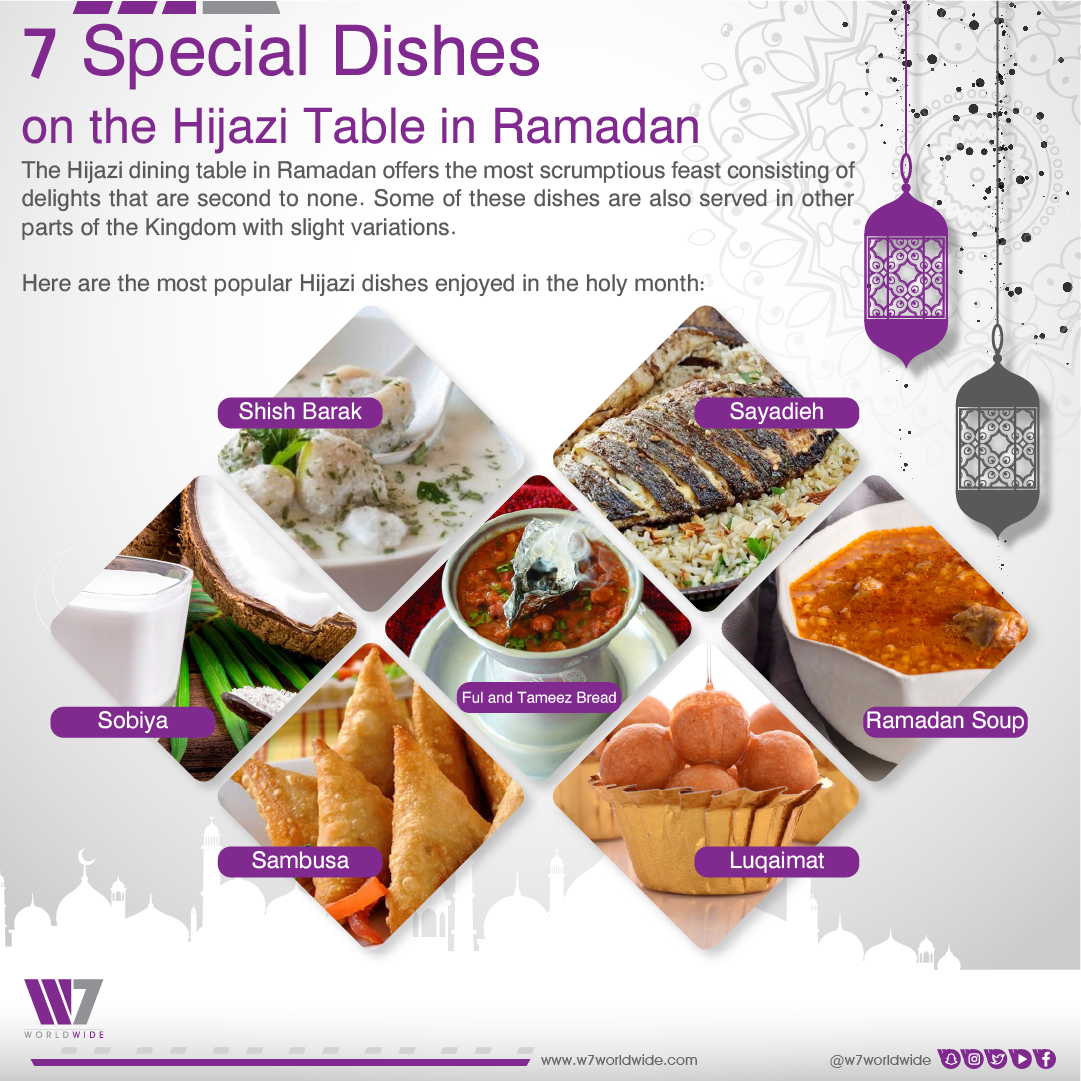7 Special Dishes on the Hijazi Table in Ramadan

The Hijazi dining table in Ramadan offers the most scrumptious feast consisting of delights that are second to none. Some of these dishes are also served in other parts of the Kingdom with slight variations.
Here are the most popular Hijazi dishes enjoyed in the holy month:
1- Luqaimat: These dumplings, made out of flour and water, deep fried and dipped in a sweet syrup, such as honey, date syrup, etc., are a hit with the adults as well as the kids.
2-Ramadan Soup: No meal in Ramadan is complete without a special soup made with oats, wheat grain, and chicken or meat. The most popular is the Harira soup, served as a starter or snack.
3-Sobiya: This is a traditional thirst-quenching drink made with barley, raisins or white bread leftovers, sweetened with sugar and cinnamon, and served with ice. Modern variations include the addition of flavors such as strawberries and tamarind.
4-Ful and Tameez Bread: Ful (mashed fava beans) and tameez (Afghani flatbread) make the perfect combination for an iftar or suhoor meal in Ramadan. Hordes of people are seen lined up outside restaurants selling this traditional dish just before sunset and suhoor.
5-Sambusa and Pastries: Sambusas are fried pastries stuffed with meat, cheese, vegetables and a variety of other fillings. These are ubiquitous on Ramadan tables across Hijaz as well as in the rest of the Kingdom.
6- Sayadieh Rice: This is a traditional rice and fish dish, typically served for both the iftar and suhoor meals.
7- Shish Barak and Shragif: A delicacy originally from Uzbekistan, Shish Barak are meat-filled dumplings cooked in a yogurt-based sauce. Shragif, meanwhile is a dish from Taif, and is known as Masabeeb in the Najd region. These are a traditional kind of pancakes made with brown flour and served with sugar, honey or butter.





